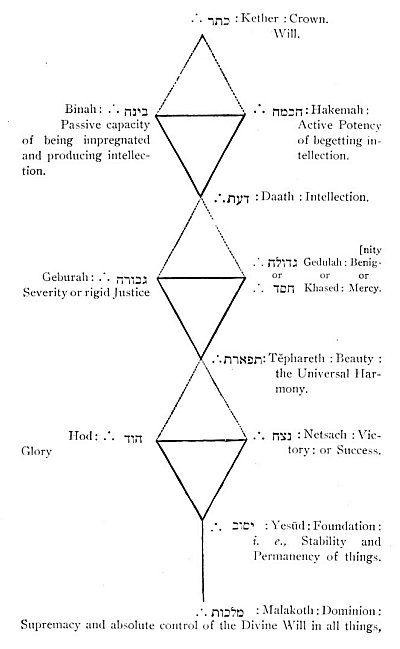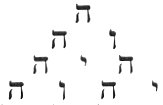Hercules Ingeniculus, who, bending on one knee, uplifts his club and tramples on the Serpent’s head, was, like Prometheus and Tantalus, one of the varying aspects of the struggling and declining Sun. The victories of Hercules are but exhibitions of
p. 592
[paragraph continues] Solar power which have ever to be repeated. It was in the far North, among the Hyperboreans, that, divested of his Lion’s skin, he lay down to sleep, and for a time lost the horses of his chariot. Henceforth that Northern region of gloom, called the “place of the death and revival of Adonis,” that Caucasus whose summit was so lofty, that, like the Indian Meru, it seemed to be both the goal and commencement of the Sun’s career, became to Greek imaginations the final bourne of all things, the abode of Winter and desolation, the pinnacle of the arch connecting the upper and lower world, and consequently the appropriate place for the banishment .of Prometheus. The daughters of Israel, weeping for Thammuz, mentioned by Ezekiel, sat looking to the North, and waiting for his return from that region. It was while Cybele with the Sun-God was absent among the Hyperboreans, that Phrygia, abandoned by her, suffered the horrors of famine. Delos and Delphi awaited the return of Apollo from the Hyperboreans, and Hercules brought thence to Olympia the olive. To all Masons, the North has immemorially been the place of darkness; and of the great lights of the Lodge, none is in the North.
Mithras, the rock-born hero (Πετρογενης), heralded the Sun’s return in Spring, as Prometheus, chained in his cavern, betokened the continuance of Winter. The Persian beacon on the mountain-top represented the Rock-born Divinity enshrined in his worthiest temple; and the funeral conflagration of Hercules was the sun dying in glory behind the Western hills. But though the transitory manifestation suffers or dies, the abiding and eternal power liberates and saves. It was an essential attribute of a Titan, that he should arise again after his fall; for the revival of Nature is as certain as its decline, and its alternations are subject to the appointment of a power which controls them both.
“God,” says Maximus Tyrius, “did not spare His own Son [Hercules], or exempt Him from the calamities incidental to humanity. The Theban progeny of Jove had his share of pain and trial. By vanquishing earthly difficulties he proved his affinity with Heaven. His life was a continuous struggle. He fainted before Typhon in the desert; and in the commencement of the Autumnal season (cum longæ redit hora noctis), descended under the guidance of Minerva to Hades. He died; but first applied for initiation to Eumolpus, in order to foreshadow that state of religious preparation which should precede the momentous change. Even in Hades he
p. 593
rescued Theseus and removed the stone of Ascalaphus, reanimated the bloodless spirits, and dragged into the light of day the monster Cerberus, justly reputed invincible because an emblem of Time itself; he burst the chains of the grave (for Busiris is the grave personified), and triumphant at the close as in the dawn of his career, was received after his labors into the repose of the heavenly mansions, living forever with Zeus in the arms of Eternal Youth.
ODIN is said to have borne twelve names among the old Germans, and to have had 114 names besides. He was the Apollo of the Scandinavians, and is represented in the Voluspa as destined to slay the monstrous snake. Then the Sun will be extinguished, the earth be dissolved in the ocean, the stars lose their brightness, and all Nature be destroyed in order that it may be renewed again. From the bosom of the waters a new world will emerge clad in verdure; harvests will be seen to ripen where no seed was sown, and evil will disappear.
The free fancy of the ancients, which wove the web of their myths and legends, was consecrated by faith. It had not, like the modern mind, set apart a petty sanctuary of borrowed beliefs, beyond which all the rest was common and unclean. Imagination, reason, and religion circled round the same symbol; and in all their symbols there was serious meaning, if we could but find it out. They did not devise fictions in the same vapid spirit in which we, cramped by conventionalities, read them. In endeavoring to interpret creations of fancy, fancy as well as reason must guide: and much of modern controversy arises out of heavy misapprehensions off ancient symbolism.

Moe is the founder of GnosticWarrior.com. He is a father, husband, author, martial arts black belt, and an expert in Gnosticism, the occult, and esotericism.





